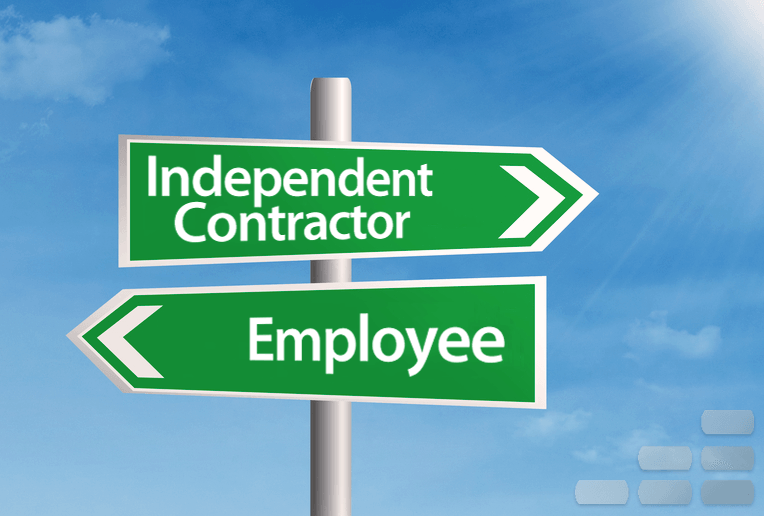This just in... Monday, August 31st, 2020 California passed new bill AB2257 that is allowing other industries to be independent contractors and not have to convert to employees. Read about it below!
Bill AB2257
AB2257 seeks to reduce this negative effect by creating more exemptions to AB5.
Under the new law, the following professions, among others, are now exempt from AB5 and the ABC test:
- Photographers, photojournalists, videographers, and digital media aggregators
- Freelance writers, translators, editors, illustrators, and cartoonists
- Musicians and music industry professionals including recording artists, record producers, musical engineers and mixers, vocalists, and independent radio promoters
- Advisors, producers, narrators and cartographers for a journal, book, periodical, or other educational or academic publication
- Insurance underwriters, real estate appraisers, and home inspectors
Subject to certain conditions, these workers will be classified based on the “Borello” test, which was used prior to the passing of AB5 and establishment of the ABC test. Under the Borello test, it is much easier for worker to qualify as an independent contractor rather than an employee.
The passing of AB2257 is good news for business owners and freelancers who have struggled to meet their hiring needs or to find work under the highly restrictive ABC test
The court adopted a new test for classifying workers that begins with the assumption that
all workers are employees instead of contractors
. An employer would need to prove that a worker is eligible to be a contractor by following the newly adopted “ABC test”, which will be discussed in further detail below.
Background
Dynamex is a nationwide same-day courier and delivery service that offers on-demand, same-day pickup and delivery services to businesses and the public. Prior to 2004, Dynamex classified its California drivers as employees. Starting in 2004, however, Dynamex converted all of its drivers to independent contractors as a cost savings measure.
The Supreme Court’s Decision
As a threshold matter, the Court framed its decision by broadly characterizing the misclassification of independent contractors as harmful and unfair to workers, honest competitors, and the public as a whole.
The ABC Test
In order for a court to recognize that a worker is classified as an independent contractor,
all
of the following requirements need to be met:
(A) The worker is free from the control and direction of the hiring entity in connection with the performance of the work, both under the contract for the performance of the work and in fact;
(B) The worker performs work that is outside the usual course of the hiring entity’s business; and
(C) The worker is customarily engaged in an independently established trade, occupation, or business of the same nature as the work performed.
The necessary requirements above explain that employers must ensure that newly covered workers receive at least minimum wage, workers’ compensation, paid sick leave, overtime, unemployment insurance, and paid family leave.
Although many workers are being classified as employees when applying the ABC test, the legislation has several exemptions to the application of the ABC test. When an exemption applies, determining whether a worker is an employee or an independent contractor will continue to be the Borello “right-to-control” test.
The Borello Test
The Borello test is more flexible because it balances the principal factor “whether the person to whom services is rendered has the right to control the manner and means of accomplishing the result desire” plus the additional following 9 factors:
1. Right to discharge at will, without cause;
2. Whether the one performing the services is engaged in a distinct occupation or business;
3. The kind of occupation, with reference to whether in the locality the work is usually done under the direction of the principal or by a specialist without supervision;
4. The skill required in the particular occupation;
5. Whether the principal or the worker supplies the instrumentalities, tools, and the place of work for the person doing the work;
6. The length of time for which the services are to be performed;
7. Method of payment, whether by the time or by the job;
8. Whether or not the work is part of the regular business of the principal; and
9. Whether or not the parties believe they are creating the relationship of employer-employee.
Factors weigh differently depending on the circumstances of the case.
| Possible Challenges to the AB 5 Law
Bills have been introduced that will give additional detail on the extensive exemptions. App-based gig economy services, such as Uber, Lyft, Postmates, and DoorDash, have filed to put a referendum on California’s 2020 ballots to provide an exemption for their workers. Discussions have taken place about additional exemption legislation and potential lawsuits. |
Specific Occupations Exemption
Workers engaged in the following occupations are exempt from the Dynamex ABC test:
- Licensed insurance brokers;
- Licensed physicians and surgeons, dentists, podiatrists, psychologists, and veterinarians, provided that the workers are not covered by a collective bargaining agreement;
- Licensed lawyers, architects, engineers, private investigators, and accountants;
- Registered securities broker-dealers, investment advisors, or their agents and advisors;
- A direct salesperson as defined under UIC §650 (essentially a person who performs in person demonstrations and sales presentations of consumer products);
- Until January 1, 2023, commercial fishermen (with certain exceptions under UIC); and
- Real estate licensees and repossession agents.
This does not mean these licensed individuals are automatically independent contractors. Borello continues to be the guideline for whether these professionals are employees or independent contractors.
Professional Services Exemption
The Borello test will still apply to independent contractors for professional services if specific conditions are met.
Professional services are defined as:
- Enrolled agents;
- Marketing services;
- Administrators of human resources;
- Travel agents;
- Graphic designers;
- Grant writers;
- Fine artists;
- Payment processing agents through an independent sales organization;
- Still photographers or photojournalists (this clause is not applicable to individuals who work on “motion pictures,” which includes television, internet streaming theater, commercials, broadcast news, music videos, and live shows);
- Freelance writers, editors, or newspaper cartoonists; and
- Newspaper distributors (passed with AB 170.)
To qualify for the professional services exemption, the individual must:
- Maintain a business location (which may include the individual’s residence) that is separate from the hiring entity. However, nothing prevents an individual from choosing to perform services at the location of the hiring entity;
- Obtain any required business and or professional license if work is performed on or after July 1, 2020;
- Have the ability to set or negotiate their own rates for services performed and to schedule their own hours outside of project completion dates and reasonable business hours;
- Be customarily engaged in the same type of work performed under contract with another hiring entity or hold themselves out to other potential customers for the same work; and
- Customarily and regularly exercise discretion and independent judgment in the performance of the services.
Tax Professionals
Enrolled Agents (EAs) will be subject to a different standard, compared to attorneys and accountants, to qualify for an exemption. EAs must meet the Borello standards, in addition to completing the tests listed above immediately. Tax preparers are not excluded and likely would be considered employees under the ABC test.
Various Salon Workers
Given the requirements are met, the following licensed workers may qualify for the professional services exemption: estheticians, electrologists, barbers, and cosmetologists. Manicurists are included in this category as well, but only until January 1, 2022.
To qualify, the professional must:
- Set their own rates, process their own payments, and be paid directly by clients;
- Set their own hours and have sole discretion over the number of clients and which clients they will see;
- Have their own book of business and schedule their own appointments;
- Maintain their own business license; and
- Issue a Form 1099 to the salon or business owner if the worker rents a space from the owner.
Business-to- Business Contracting Exemption
Business entities, including sole proprietorships that contract to provide services to another business, are also exempt from the ABC test.
In order to qualify for the exemption, the contract must be in writing, and
the service provider must:
- Be free from the control and direction of the contracting business entity, both under the contract for the performance of the work and in fact;
- Provide services to the contracting business rather than to customers of the contracting business;
- Have a required business license or tax registration if the work is performed in a jurisdiction that requires such;
- Maintain a business location that is separate from the business or work location of the contracting business;
- Be customarily engaged in an independently established business of the same nature as that involved in the work performed, contract with other businesses to provide the same or similar services, and maintain a clientele without restrictions from the hiring entity;
- Advertise and hold itself out to the public as available to provide the same or similar services;
- Provide its own tools, vehicles, and equipment to perform the services;
- Negotiate its own rates and set its own hours and location of work; and
- Not be performing the type of work for which a license from the Contractors State License Board (CSLB) is required
Contractor/Subcontractor Exemption
The Borello standard would apply to classifying construction contractor/subcontractor relationships if the contract is in writing and the subcontractor:
- Is free from the control and direction of the contractor in connection with the performance of the work, both under the contract for the performance of the work and in fact;
- Is licensed by the California Contractors State License Board, and the work is within the scope of that license;
- Has a local business license or business tax registration if the subcontractor is domiciled in a jurisdiction that requires a license/registration;
- Maintains a business location that is separate from the business or work location of the contractor;
- Has the authority to hire and to fire other persons to provide or to assist in providing the services;
- Assumes financial responsibility for errors or omissions in labor or services as evidenced by insurance, legally authorized indemnity obligations, performance bonds, or warranties relating to the labor or services being provided; and
- Is customarily engaged in an independently established business of the same nature as that involved in the work performed.
Can I Just Form a Corporation?
The law is clear:
The rules apply to any “person,” defined as an individual, corporation, or partnership. (Labor Code §§2750.3(b)(2) (related to medical professionals), 2750.3(c)(2)(A) (related to professional services), 2750.3(e) (related to business to business exemption), 2750.3(f)(8)(i) (related to construction contractors/subcontractors), 2750.3(g)(1) (related to referral agencies))
Reconciling Differences Between Federal and California Law
Employers may choose to classify workers as employees for California purposes and independent contractor for federal purposes. AB 5 changes the worker classification rules for California purposes. The federal government continues to apply the transitional right-to-control standards (like Borello).
What This Means for California Businesses
If a worker is classified as an employee, the employer bears the responsibility of paying Social Security and payroll taxes, unemployment insurance taxes and state employment taxes, providing worker’s compensation insurance, and complying with the endless labyrinth of state and federal statutes governing the wages, hours, and working conditions of employees.
Any businesses operating in California that treats workers as independent contractors should confer with their legal counsel to review the relationship under the “ABC test” and determine whether any or all such workers should be reclassified.
Independent contractors that are outside of California can continue to be classified as contractors.
EDD’s Response to the Dynamex Decision
As of November 2018, the EDD has not released anything in writing, but have announced that they will not change the way they do business as a result of the Dynamex case.














